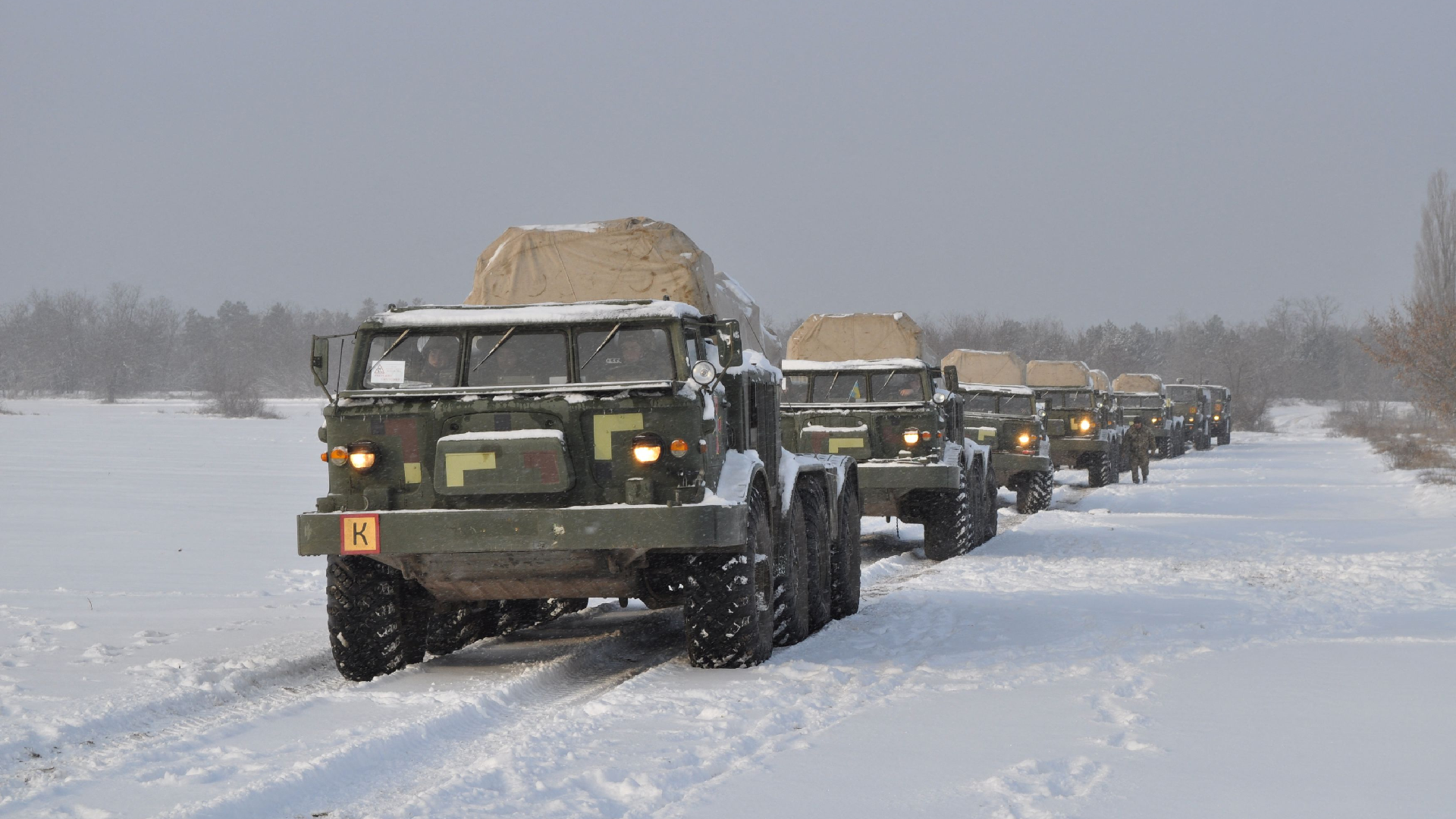Situation in Ukraine: Frequent diplomatic contacts to come
Servicemen of the Ukrainian Armed Forces conduct self-propelled multiple rocket launcher systems during exercises in Kherson region, Ukraine, in this photo released February 1, 2022. /Reuters
Servicemen of the Ukrainian Armed Forces conduct self-propelled multiple rocket launcher systems during exercises in Kherson region, Ukraine, in this photo released February 1, 2022. /Reuters
Ukraine boosted its armed forces by 100,000 over three years with a decree signed by Ukrainian President Volodymyr Zelensky on Tuesday, and diplomatic contacts will continue in the coming days over rising tensions between Russia and the West in the subject of Ukraine.
Tensions have been rising for weeks, with Washington accusing Moscow of plotting an imminent invasion of Ukraine. Russia denies any invasion plans but demands that Ukraine never be allowed to join NATO and a range of other security guarantees against the expansion of the US-led military alliance.
American contacts with Russia continue
US Secretary of State Antony Blinken is due to speak by phone with his Russian counterpart Sergei Lavrov on Tuesday at mid-morning Washington time, AFP reported.
Ahead of Monday night’s call, Moscow sent a letter to Washington setting out its views, in response to written communications outlining the two sides’ positions that have been exchanged over the past two weeks.
Blinken and Lavrov spoke face to face on January 21 in Geneva, and since then the two sides have exchanged written responses in an attempt to clarify their positions.
Zelensky and US President Joe Biden discussed diplomatic efforts on de-escalating the crisis in and around Ukraine during a phone conversation several days ago, which marked the second conversation between Ukrainian and US leaders since the beginning of the year.
UK warns Russia to ‘back down’
British Prime Minister Boris Johnson was due to meet Zelensky later on Tuesday.
“We urge Russia to step back and engage in dialogue to find a diplomatic solution and avoid further bloodshed,” Johnson said in remarks released ahead of his arrival.
“As a friend and a democratic partner, the UK will continue to defend Ukraine’s sovereignty against those who seek to destroy it.”
Meanwhile, a phone call between Johnson and Russian President Vladimir Putin has been rescheduled for Wednesday afternoon.
Italy calls for “de-escalation”
Italian Prime Minister Mario Draghi called for a “de-escalation” of tensions over Ukraine during a Tuesday phone call with Putin.
They agreed on a common commitment to a lasting and lasting solution to the crisis, and on the need to rebuild a climate of trust, according to the Prime Minister’s Office.
Putin, for his part, has accused Ukrainian authorities of violating their obligations to settle a dispute with Moscow-backed separatists, the Kremlin said.
UN emphasizes dialogue to defuse tensions
UN Under-Secretary-General for Political and Peacebuilding Affairs Rosemary DiCarlo on Monday called for dialogue to defuse ongoing tensions between Russia and Ukraine, and underscored the UN Secretary-General’s call for United Nations to all parties concerned to take immediate steps to defuse tensions and pursue the diplomatic path.
“The accusations and recriminations among the various actors involved in the ongoing discussions have created uncertainty and apprehension for many that a military confrontation is imminent,” she said.
China’s UN ambassador also called on Monday for quiet diplomacy instead of megaphone diplomacy over tensions between Russia and Ukraine.
In a procedural vote, China and Russia voted against an open Security Council meeting on Ukraine. The meeting proceeded with 10 other council members voting in favour.
(With the contribution of the agencies)


Comments are closed.